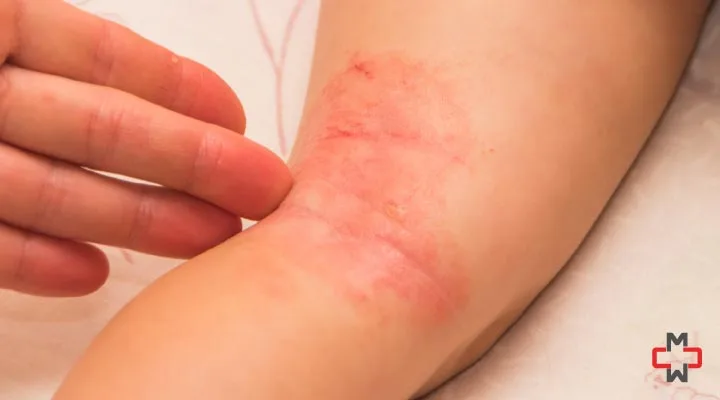Short Answer: Most yeast infections clear up with treatment in 3 to 7 days. Mild yeast infections may improve in as little as 1 to 3 days, while more severe infections can take up to two weeks to fully resolve. Without treatment, symptoms may persist or worsen.
What Are Yeast Infections?
Yeast infections, also called vaginal yeast infections or vaginal candidiasis, are common fungal infections caused by the Candida fungus, most often Candida albicans. While naturally present in the body, this fungus can multiply quickly when the balance between yeast and healthy bacteria is disrupted.
Most yeast infections affect the vaginal area but can also occur on the skin (known as cutaneous candidiasis), in the mouth (oral thrush), or under skin folds.
Symptoms of a yeast infection typically include:
-
Vaginal itching or burning
-
Abnormal vaginal discharge (often thick, white, and odorless)
-
Redness and swelling of the vaginal opening
-
Painful urination or intercourse
-
Watery vaginal discharge in some cases
What Causes Yeast Overgrowth?
Candida overgrowth may be triggered by:
-
Taking antibiotics (they can kill beneficial bacteria, allowing yeast to thrive)
-
A weakened immune system (due to HIV infection, stress, or medication)
-
Hormonal changes from birth control pills or pregnancy
-
High sugar diets (sugar feeds the fungus Candida)
-
Poor hygiene or damp, tight clothing
-
Being sexually active (though yeast infections are not sexually transmitted infections, they may be passed between partners)
How Long Does a Yeast Infection Last?
With Treatment:
Most vaginal yeast infections clear up in:
-
1 to 3 days using short-course antifungal medications like miconazole or clotrimazole
-
Up to 7 days for more moderate cases using vaginal cream, suppositories, or oral medication like fluconazole
-
Up to two weeks if symptoms are persistent or if dealing with a complicated yeast infection
Moderate yeast infections typically require consistent application of topical antifungal medicine and close monitoring of symptom relief. If symptoms persist, a switch in treatment options may be necessary.
Without Treatment:
Untreated yeast infections can linger for weeks. They may worsen and lead to:
-
Cracking or bleeding of the skin
-
Spread to nearby areas like the anus or thighs
-
Rarely, systemic infections like invasive candidiasis in people with immune deficiency
Treating Yeast Infections
Over-the-Counter (OTC) Options:
Short-course vaginal therapy includes:
-
Creams, ointments, tablets, or suppositories
-
Brands like Monistat (miconazole), Gyne-Lotrimin (clotrimazole), or Vagistat (tioconazole)
Prescription Treatments:
-
Oral medication: Single-dose fluconazole or multi-dose regimens for severe yeast infections
-
Long course vaginal therapy for persistent or recurrent infections
Natural & Alternative Medicine:
-
Boric acid: Used in recurrent vulvovaginal candidiasis; not suitable during pregnancy
-
Probiotic vaginal microbiota: May support a healthy balance of yeast and bacteria
Note: Always complete the full course of treatment, even if symptoms improve early.
Additional treatment options may include longer prescription regimens for moderate yeast infections or alternative routes of antifungal medicine, depending on patient history and symptom resistance.
Can a Yeast Infection Be Something Else?
Sometimes, what feels like a yeast infection may be:
-
Bacterial vaginosis (another common vaginal infection)
-
Sexually transmitted infections like genital warts, herpes, or trichomoniasis
-
Skin irritation or eczema
-
A bacterial infection that requires antibiotics
👉 If you’re unsure, schedule a visit to get your yeast infection diagnosed properly.
📅 Book an in-person, virtual, or walk-in appointment with Manhattan Medical Arts
Preventing Vaginal Yeast Infections
To help prevent vaginal yeast infections, consider:
-
Wearing breathable cotton underwear
-
Avoiding douches, scented soaps, or tight clothing
-
Keeping the genital area dry
-
Taking probiotics, especially when taking antibiotics
Recurrent and Complicated Yeast Infections
Recurrent yeast infections (4 or more per year) may signal:
-
An underlying medical condition like diabetes
-
Antibiotic overuse
-
Hormonal imbalances
These require special care and sometimes long-term antifungal therapy. Additional treatment options such as ongoing oral antifungal medicine or probiotic therapy may be required in these cases.
When to See a Doctor
Seek care if:
-
This is your first yeast infection
-
Symptoms don’t improve after 7 days
-
You have severe symptoms or a weakened immune system
-
You suspect a complicated yeast infection
🧑⚕️ Dr. Syra Hanif and the team at Manhattan Medical Arts provide expert evaluation and treatment for all forms of vulvovaginal candidiasis.
📅 Book a virtual consultation or walk-in today
FAQs
How do I know if my yeast infection is going away?
Symptoms like itching and discharge should improve within a few days of treatment.
What are the stages of yeast infection?
Early itching → inflammation → discharge → relief with treatment → return to healthy balance.
How long does a yeast infection last if not treated?
It may persist for weeks, worsen, and increase your risk of recurring yeast infections.
What worsens a yeast infection?
Sugar, stress, moisture, antibiotics, and scented hygiene products.
How can I get rid of a yeast infection in 24 hours?
A single-dose oral medication like fluconazole can start working within 24 hours, but full resolution takes a few days.
📅 Walk in or schedule your care with Manhattan Medical Arts
Disclaimer
This blog is for informational & educational purposes only, and does not intend to substitute any professional medical advice or consultation. For any health related concerns, please consult with your physician, or call 911.
-
About The Author
Dr. Syra Hanif M.D.Board Certified Primary Care Physician
Dr. Syra Hanif is a board-certified Primary Care Physician (PCP) dedicated to providing compassionate, patient-centered healthcare.
Read More







